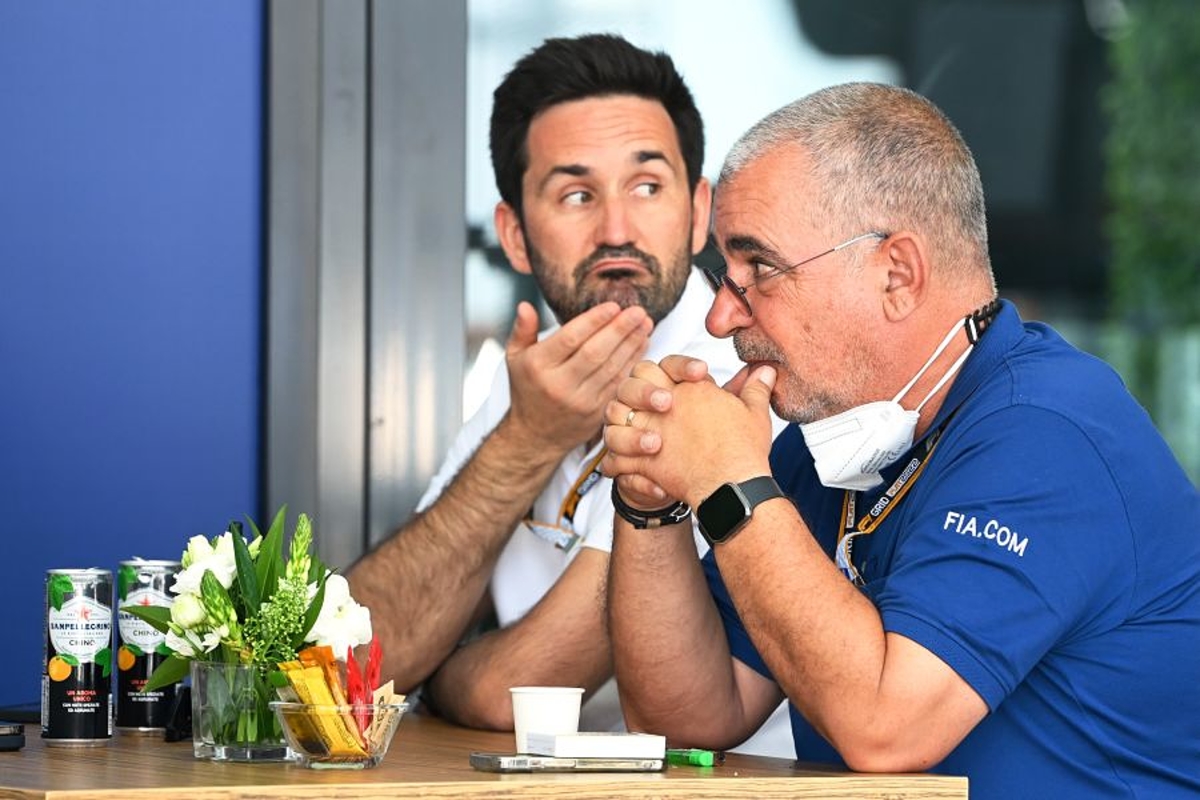Another race, another baffling set of decisions made by the FIA that overshadowed the action on track.
Drivers were unhappy with the handling of track limits violations throughout the event, with over 40 incidents relating to the white line highlighted during the Austrian Grand Prix.
Whilst these decisions were problematic, to say the least, there is a whole other argument to have on that.
For the most part, the sprint delivered with overtaking aplenty at the Red Bull Ring, but despite the thrills and spills on track, the decision-making off it left a lot to be desired.
I wrote at the start of the season - before Michael Masi was removed from his post - that F1 should be careful what it wished for.
Unfortunately, complications and a state of confusion at almost all of the opening 11 races prove this theory correct.
Here are three areas of contention from the Austrian GP weekend that highlight the need for change.
Sergio Perez made his way, unsurprisingly, into Q3 in Friday's qualifying session and eventually set the fourth-fastest time of the day.
Yet the Mexican would eventually start the sprint from 13th after the FIA stewards noticed a track limits infringement on his best Q2 run, albeit shortly after Q3 had started.
In finding him guilty, all of Perez's times were deleted from Q3 and he was sent back to where his second-best time in Q2 would have left him.
But the failure to spot the infringement, despite the new VAR-style remote set-up to help the stewards, is not good enough in a sport where the finest of margins make or break a weekend.
It meant that Pierre Gasly, 11th quickest in Q2, was not afforded the opportunity to take part in Q3. At the start of the sprint, the AlphaTauri driver collided with Lewis Hamilton. That may not have happened if the FIA had acted more quickly.
Perez, unknowingly, burned through two further sets of tyres in Q3 and risked suffering the same fate as both Mercedes drivers in a session that ultimately the record books will show he never took part in - an unfair price to pay for the governing body's inadequacy.
Alex Albon - Forcing a rival off track
This is where the usual groans over a lack of consistency enter the fray.
The thrilling British Grand Prix, where the final 10 laps saw overtaking left, right and centre, raised questions about racing conduct after Max Verstappen and Perez both forced rivals off the track.
But unlike last season, where the reigning champion's on-track antics prompted a refresher of the laws of engagement, both drivers were in control of their defences and remained on the track themselves, at least partially absolving the FIA of ridicule.
But fast forward to the sprint in Austria and Alex Albon is penalised five seconds for an innocuous incident with Lando Norris - the McLaren running wide at turn three after attempting a move around the outside.
The fundamental lack of consistency may come down to the switching between two race directors but whatever the reason, it's simply not good enough when drivers, teams and fans alike are left scratching their heads after a decision.
A lack of consistency has been an issue for far too long now. Action must be taken.
Sebastian Vettel - Behaviour in the drivers' meeting
Sebastian Vettel was handed a suspended €25,000 fine for his behaviour in Friday's drivers' briefing after reportedly leaving without permission.
It is understood the four-time champion became frustrated during the conversations that took place and stormed out of the room, landing him in hot water.
It is not the right thing to do. Fact. Should a fine have been given instead of a suspended fine? Probably, if his behaviour was deemed so serious.
But to suggest Vettel was not being a good role model, as highlighted in the stewards' report, frankly shows how out of touch the governing body is at the moment.
The GPDA director arrives each weekend with a different societal or environmental cause adorning his t-shirt, speaks eloquently whenever a touchy subject is raised and is involved in less-fortunate communities to help provide a way into F1 through activations.
The statement released, accusing Vettel of failing to be a proper role model, is simply absurd.
I hope there is a rethink within the FIA to address the issues highlighted above and certainly an apology made to Vettel for the utterly foolish remarks made about the German.
But no doubt F1 is reaching a crisis point at which the body that governs its rules and regulations seemingly cannot be trusted.
Related

















































 Grand Prix du Canada 2025
Grand Prix du Canada 2025  Grand Prix of Austria 2025
Grand Prix of Austria 2025  Grand Prix of Belgium 2025
Grand Prix of Belgium 2025  Grand Prix of Hungary 2025
Grand Prix of Hungary 2025  Grand Prix of Azerbaijan 2025
Grand Prix of Azerbaijan 2025  Grand Prix of Singapore 2025
Grand Prix of Singapore 2025  Gran Premio de la Ciudad de Mexico 2025
Gran Premio de la Ciudad de Mexico 2025  Grande Prêmio de São Paulo 2025
Grande Prêmio de São Paulo 2025  Qatar Grand Prix 2025
Qatar Grand Prix 2025  Grand Prix of Abu Dhabi 2025
Grand Prix of Abu Dhabi 2025 